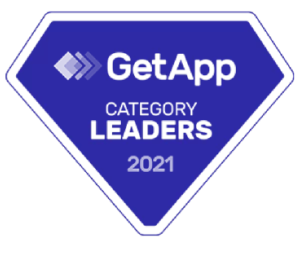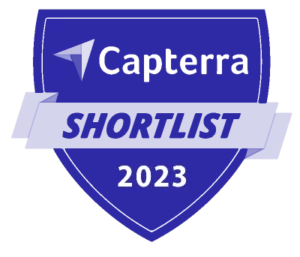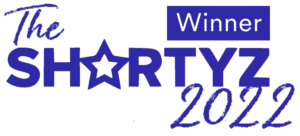Managing employees is one of the biggest challenges in vacation rental management. This is especially true for smaller businesses, which often find their resources stretched. So, what are some tips for managing vacation rental employees as effectively as possible?
Vacation rental teams need a robust coordination and management tool
Unlike a regular business where all employees are in one physical location, a vacation rental management business has many employees spread across a potentially large area. Some may be in the office or working from home, while others might be at the properties themselves. With that in mind, efficient vacation rental companies will require a platform that can harmonize as much as possible from one online space.
Rather than having separate services for managing bookings, coordinating different departments, and dealing with income and expenses, the best solutions are those that automate and synchronize all of these tasks. So, when it comes to managing vacation rental employees, a property management platform is the ideal system.
But that’s for general operations. Cleaners and maintenance crews will need their software centralization tools. Apps like Breezeway, VRScheduler, TurnoverBnB, and Properly are likely what they’ll use most often. What’s important is to make sure your niche apps integrate into the property management platform (PMP). In the example of cleaning staff, their cleaning management app will let them know when a property is ready for turnover based on the calendar information the PMP sends.
Other great communication tools include:
- Asana
- Trello
- Mondays
Each of these communication tools can be set up with templates. Vacation rental management companies can create a template workflow for a reservation. Spanning from reservation confirmation to check-out, list all the steps required per stay. You can use Zapier to pull reservation data from your PMP into Asana, Trello or Mondays to initiate a new template. The template will then alert team members when they are required to take action for that reservation.
Expectations: everyone has to chip in when needed
70% of vacation rental companies are small businesses. At smaller rental management companies, in particular, employees will often have a lot on their plates. It can be tempting to take on too much responsibility, especially if you’re the owner of the properties. Nonetheless, sharing the workload with trusted colleagues is more productive than trying to manage everything yourself. This is especially true if you’re trying to grow your business.
To optimize efficiency in a small vacation rental management company, it’s critical to build skills overlap. If one employee goes on vacation, is sick, or quits, you must ensure others can pick up the slack. In that kind of emergency, employees must cover for each other—which might mean more senior staff need to clean a property or greet guests at check-in.
As the boss, you have to ensure that all your staff is prepared for such situations. That means developing skills from within the company. Plus, the benefits of cultivating abilities within the company extend far beyond just emergency-proofing your company. Growing your talent internally will also improve employee retention and help strengthen your team.
Hiring experienced candidates vs internal development
Within a niche industry like vacation rental management, it can be difficult to find experienced candidates. But if you search from the hotel and hospitality industry, you’re sure to find candidates with relevant, transferable skills.
Former hotel industry employees add a lot of value to a vacation rental business since they’re used to standard operating procedures and will have been trained with a guest-first mentality. If your company lacks in either of those areas, former hotel employees will be able to fill those blind spots.
It’s also worth remembering that you’re hiring for traits and quality rather than solely experience. It’s the same for any business. The right fit is everything. However, in vacation rentals, the employee needs to be warm and approachable. That’s in large part due to the frequent interactions with guests. Questions to ask yourself when assessing experience vs personality:
- Will this person fit the culture of your company?
- Would you see this person interacting with guests?
- Does this person convey the brand you’re working to promote?
Whether hiring internally or externally, make sure you give all your vacation rental employees a chance to grow and develop parallel skills. This will keep them motivated, loyal and build overlap across the different specializations.
The power of a structured onboarding process
So, you’ve defined the tasks you need help with and decided to recruit a new staff member. That means it’s time to prepare an onboarding process. Make sure it’s structured and includes introducing recruits to the rest of the team. Also make it clear where to find procedures. And finally, new employees should get the rest of the team’s contact information as soon as possible.
Why have an onboarding process for vacation rental employees?
A robust onboarding process has several advantages:
- Making new employees feel welcome.
- Helping new recruits understand how their role affects the rest of the company.
- Providing new staff members with contact points they can reach out to when they face initial challenges.
Write a procedure for everything
Yes, we know procedures are boring—but in a crisis, you’ll be glad you have them! Clear procedures for managing vacation rental employees will help you to define responsibilities and ensure efficiency in your vacation rental company.
In terms of priority, focus on the areas where the guest experience might be affected. Start with handling incoming leads, then concentrate on cleaning procedures and responses to emergency maintenance issues. Those three categories have the highest impact on guest reviews. If those processes get dialed in, they’ll also get you more repeat and referral bookings. Then consider owner management and retention. If you have a set way to deal with owners’ questions or concerns, at least write down your thought process. It’ll give your employees a starting point should you ever be unavailable or on holiday.
Clear roles and responsibilities: identifying processes and procedures
Start by writing down all the typical tasks your business has to carry out. If you want something to jog your memory, check out pages 6 and 7 of this report. Then assign a name or job title to all of them. Look at which name or job title is involved at each stage. It’s a great way to help you understand what happens in your business and get an overview of the workload.
That same chart will be handy for your staff. Your team will be more efficient when everyone knows what they are responsible for. It might also stimulate a productive conversation with your staff. Looking at the chart, your team may come up with optimizations to these processes.
Once all your processes and procedures are in place, you should also consider harnessing technology. Most functions in vacation rental management now have a niche tool that can boost efficiency.
When something goes wrong…
You may think you’ve planned for every eventuality—but as we all know, the best-laid plans can still go wrong. Ask yourself: does everybody know what to do when a certain situation arises, such as a last-minute booking?
If you’re faced with an emergency, use it as a learning experience. Once you’ve resolved the situation, reflect on whether your existing procedures could have prevented it. If not, write a system to handle that type of emergency in the future.
Note: To prevent some of the most common emergencies before they happen (noise complaints, unauthorized parties, parking and trash issues), consider noise and occupancy sensors. Privacy-safe noise and occupancy monitoring can let your staff know when a problem arises so they can handle it quickly; it can also message guests directly to nip excessive noise and crowd issues in the bud before staff has to intervene.
Solve problems as a team
Whether it’s the challenge of scoring more 5-star reviews, boosting revenue management KPIs or cost-saving, make sure to include as many of your vacation rental employees as you can in your problem-solving process. They’re all involved in the day-to-day tasks, but they’ll each have valuable perspectives on how the business operates as a whole. The cleaning team might have insights on how to charge more per night, or the accounting team might have an idea about why properties aren’t attracting the right clientele.
Foster growth and innovation at every level
Incentivize your vacation rental employees to grow and innovate within their roles. Think of staff development as an investment for the future. Consider the skills your employees will need to develop to keep up with industry trends, and on your side, the benefits you can offer them. This might include perks like paid leave and health insurance.
To boost productivity and motivation, you could consider a profit-share or put in place a bonus for cost-saving or efficiency-boosting initiatives. And to bolster creativity among your workforce, never underestimate the power of a monthly brainstorming session!
Finally, sending employees to conferences and hospitality training events could be a huge boost.
The bottom line: Take time for your processes and people
Managing vacation rental employees can be challenging, but you can make things easier by creating standard procedures, a robust onboarding process and investing in your employees’ skills. To keep track of all your processes, get a property management system in place to manage bookings, coordinate work and handle income and expenses.








